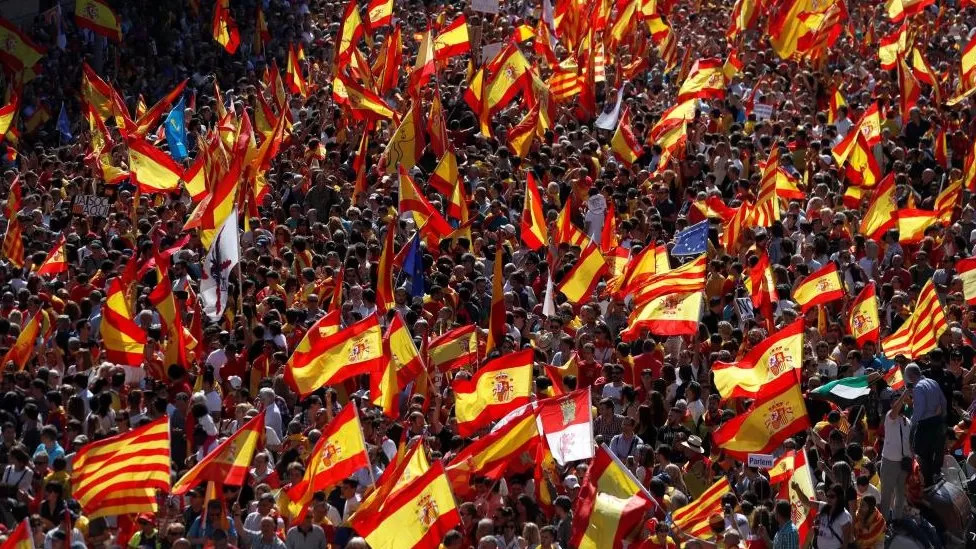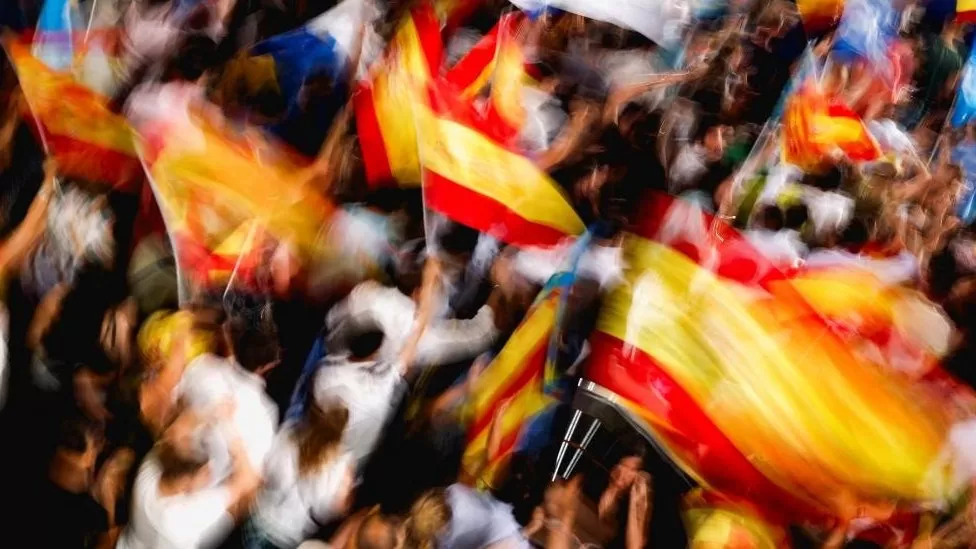Spanish politics is facing deadlock as a snap election ended with no single party easily able to form a government.
Support for the far-right fell sharply and the conservative PP party is now the biggest in parliament, but would find it difficult to form a coalition.
Pedro Sánchez’s governing Socialists did better than expected, but also face an uphill struggle to form a new coalition.
Another vote seems all but inevitable. But this one did throw up some surprising results – here are four things we learned.
Vox popular? Not so much
All the pre-election headlines focused on the possibility of a surge for the far-right Vox party and its entry into a coalition with the conservative People’s Party (PP).
As it turned out, it lost half a million votes compared to 2019.
The poor performance was a big surprise, particularly after its strong showing in May’s local elections. Vox’s leader, Santiago Abascal, lay at least some of the blame at the door of the PP, which he said had been too triumphalist in its campaigning on behalf of the right.
“They sold the bear’s skin before they had even hunted it,” he told supporters. “That is clearly the reason why there was a lack of mobilisation [of voters].”
With only 33 seats, down from 52 in 2019, Vox has fallen below the threshold which allows it to present appeals before the constitutional court against legislation.
In recent years, the court has been barraged by Vox with appeals against the Sánchez government’s laws, including on transgender rights, a euthanasia bill and even the use of the state of emergency during the pandemic.
It has now been stripped of this powerful tool for capturing the limelight.

Núñez Feijóo wins again – or does he?
PP leader Alberto Núñez Feijóo has a reputation as an election-winner and secured four consecutive majorities in his native region of Galicia.
He can now add to that a general election victory in which his party got 47 seats more than in 2019. However, the PP did not win an outright majority and its possible coalition partners failed to win enough to make up the difference.
This is not the result he wanted, given that he appears to have very little chance of forming a government.
The PP benefited from the collapse of the centre-right Ciudadanos. But it might have won even more seats if Mr Núñez Feijóo had not had such a poor campaign.
In the final week before voting, he declined to take part in a televised debate, was put on the spot over incorrect claims about pensions, and faced scrutiny over a friendship he had with a drug trafficker in the 1990s.
The election was also taking place as the PP negotiated the formation of dozens of local governments with Vox. This was an ideal situation for the left, which was able to warn voters of a repeat at national level – with negative results for minority rights.
That may have spooked moderate voters on the right while mobilising the left.
Sánchez the survivor
Although he came second, this felt like a win for Socialist leader Pedro Sánchez, given how low expectations had fallen after a poor performance in May’s local elections.
His party gained two seats and ended up with just 14 seats fewer than the PP. The result apparently means the right cannot form a government and it also ensures Sánchez will continue as the country’s leader for at least another few months, enough to see out Spain’s tenure of the revolving EU presidency.
The 51-year-old has repeatedly defied the odds throughout his relatively short career in frontline politics:
- In 2016, he took back the leadership of his own party after being abruptly removed
- In 2018, he became prime minister through a no-confidence motion against Mariano Rajoy that few expected to flourish
- He kept the first coalition government of Spain’s modern era together through a pandemic.
Add those to scoring an unlikely election result that almost looks like a victory.

The ‘Catalan issue’ refuses to fade
It is six years since Catalan secessionists tried to break away from Spain. The crisis continues to dog the nation’s politics.
Mr Sánchez’s reliance on, and concessions to, Catalan and Basque nationalist parties has contributed to his status as a hate figure for the right and dominated much of the campaign.
But now the dust has settled on the result, those same parties could hold the key to a new left-wing government being formed.
The problem for Mr Sánchez is that among them is the hardline Catalan separatist party Together for Catalonia (Junts), which has described this result as “a window of opportunity” to achieve secession.
With the self-exiled former Catalan premier Carles Puigdemont as its figurehead, it is demanding a Scotland-style referendum on independence in exchange for any parliamentary co-operation, a concession Mr Sánchez has said he will never make.
If that is indeed the case, Spain could be heading for a repeat election.
















